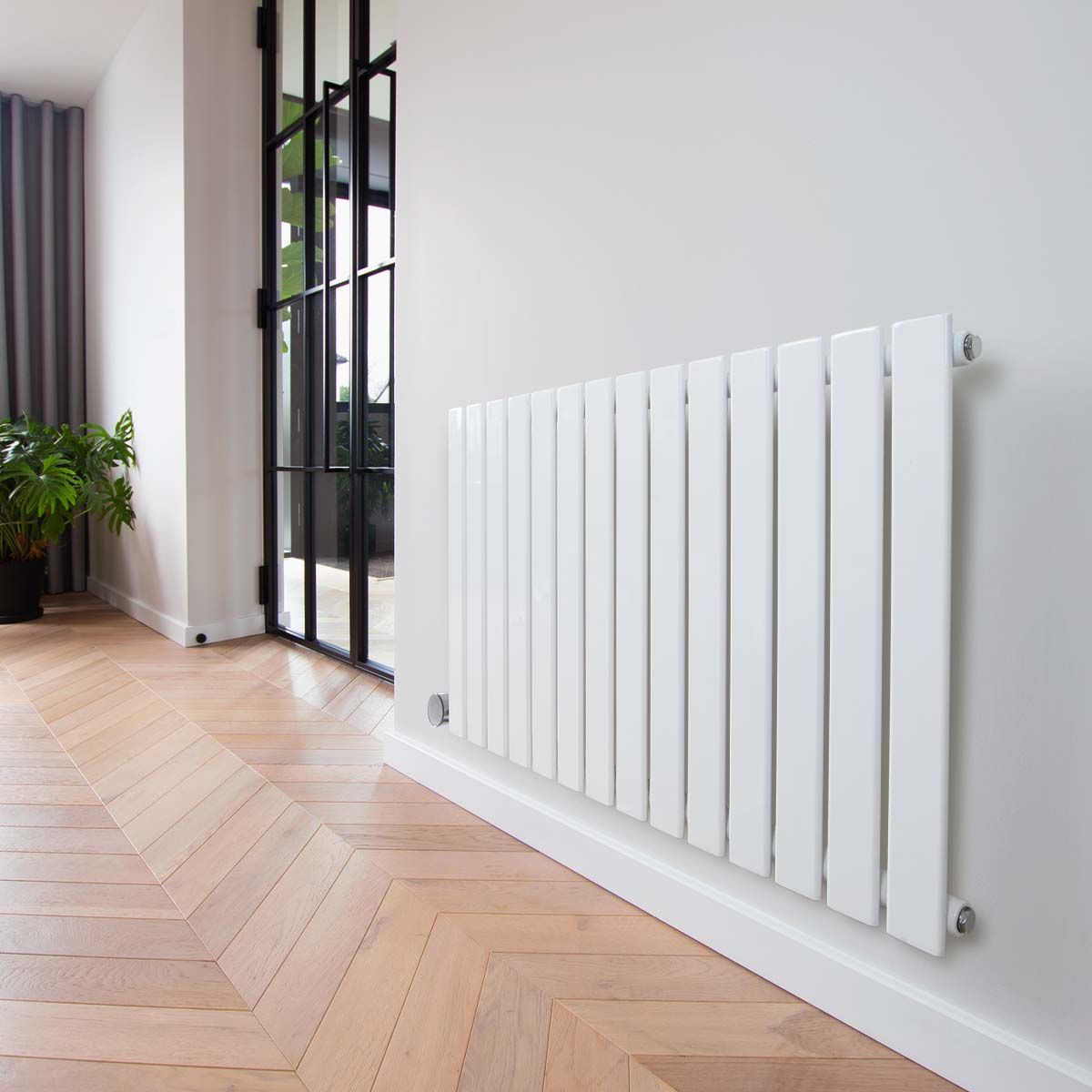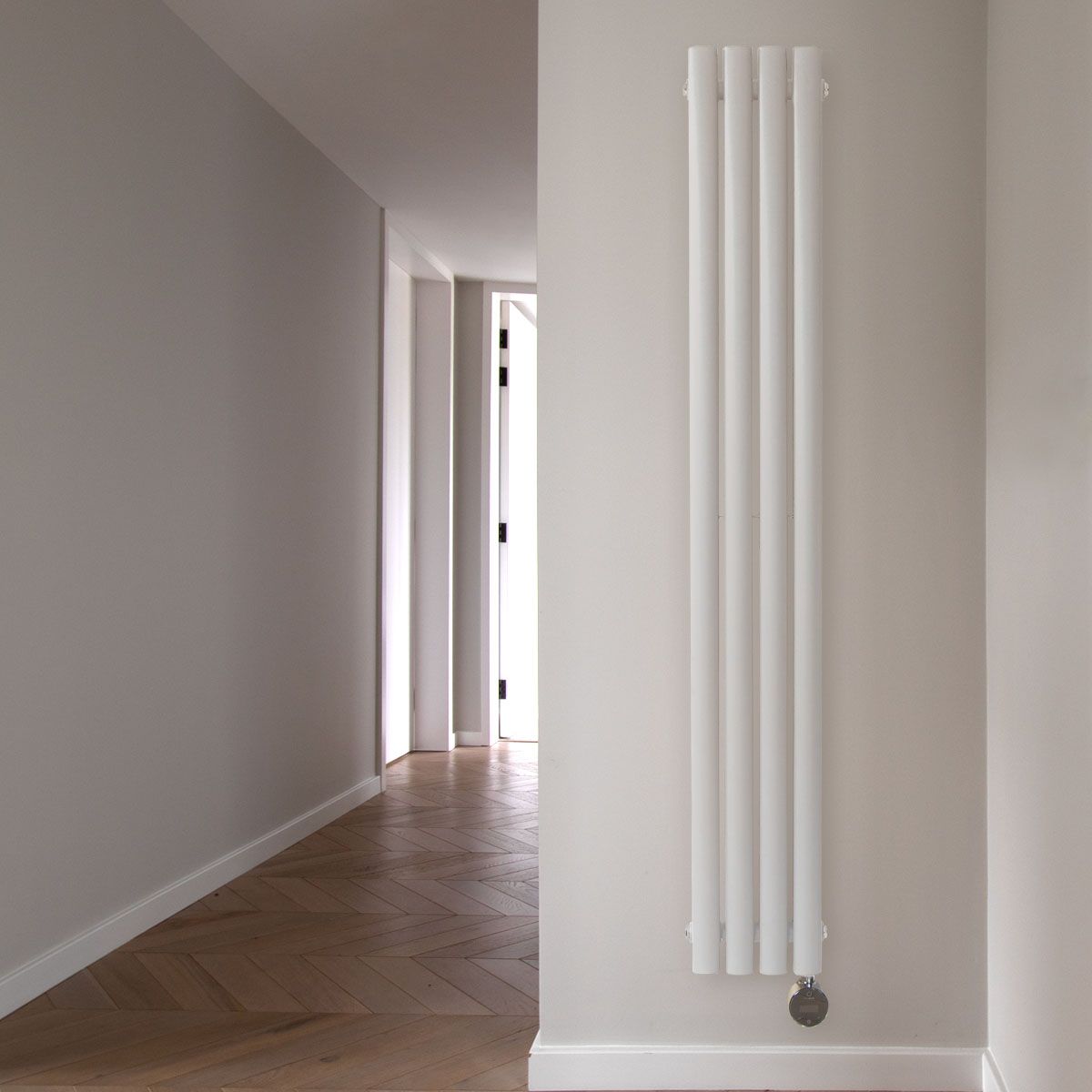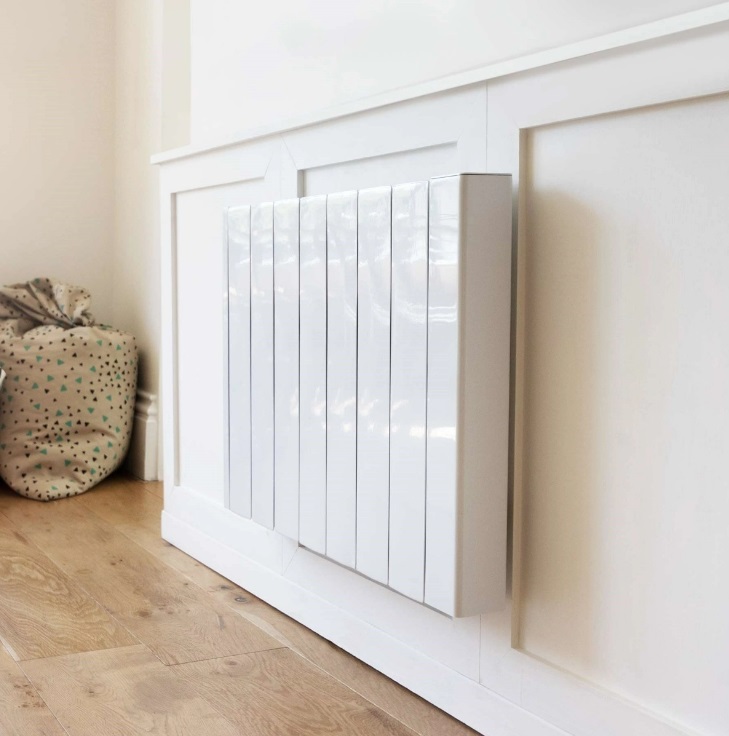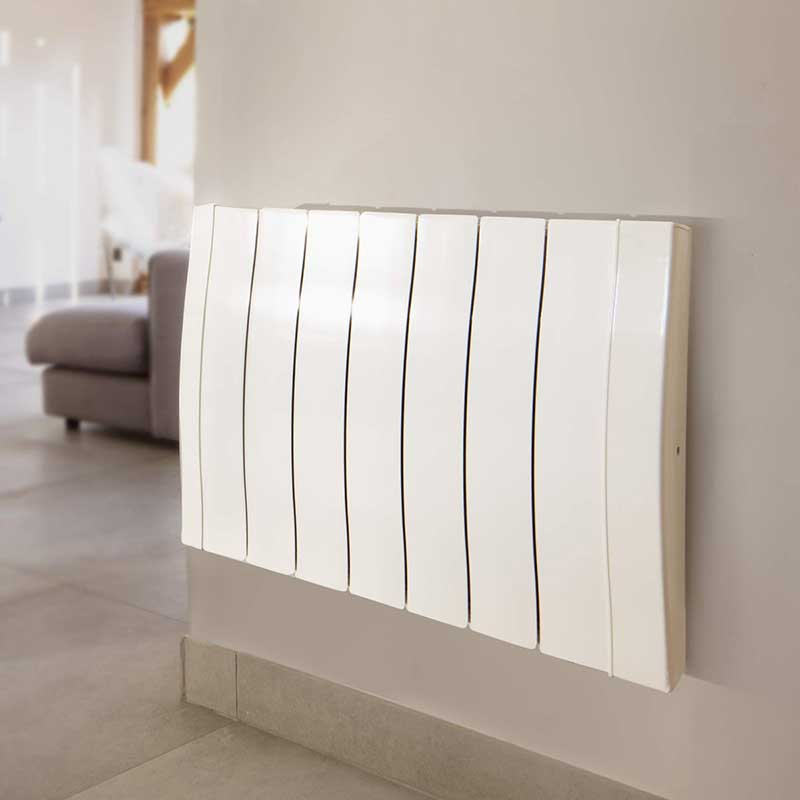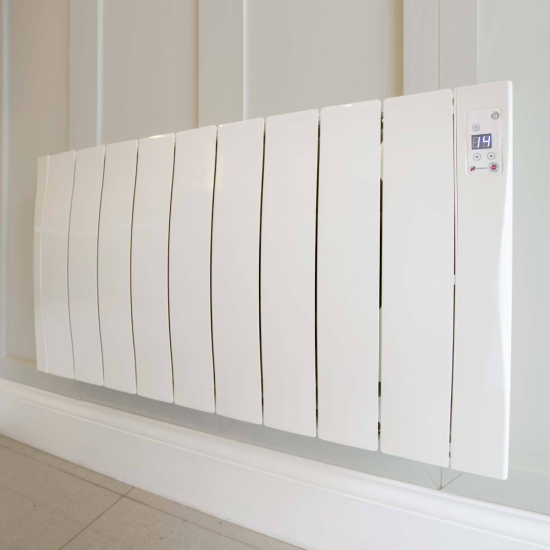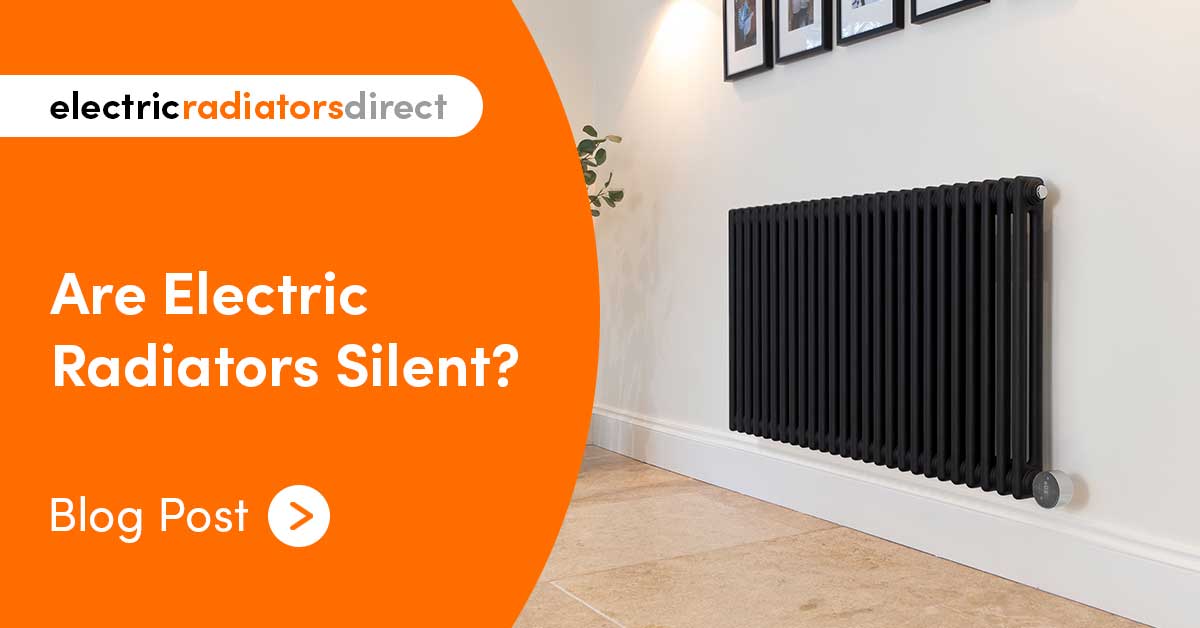

Last updated: June 2023
We don’t often associate noise with inanimate objects, making it all the more noticeable when our heaters start to make the odd ping, crackle or clunk. In actuality, most heating systems make some form of noise – be it the gentle whirr of a blow heater, or the pop and spit of a wood-burning stove – but if you’re not sure how much noise is too much noise when it comes to electric radiators, here’s everything you need to know.
Why do electric radiators make noise?
The heat-up process
Even heating systems that don’t have any moving parts can still make the occasional sound. The science behind the noises is simple: it’s all to do with how materials change shape as they warm up. When a material is heated, the energy of its molecules increases, causing the space in between the atoms to expand. This is true for all solids, gases and liquids, so whenever your radiators get warm, their housings will expand slightly, causing the odd ‘clunk’ in the process – something you will commonly find with dry thermal and dry-stone electric radiators.
The cooldown process
Sound can also occur when the process is reversed. As your radiators cool down, the metal housing will start to contract ever so slightly, again causing the metal to make noise. Oil-filled electric radiators can make a slightly different sound when they heat up, sometimes described as a crackling, popping or a clicking noise – this is completely normal and caused by the expansion of the thermal fluid. Don’t worry if the crackling sound persists for a while; it’s because the oil takes time to get warm, especially if it’s heating up from cold.
Which radiators are quieter: gas or electric?
In many electric radiators, the amount of noise produced tends to be restricted to an intermittent click as the thermostat engages or whenever the heater housing warms up, but with central heating radiators, it’s an entirely different matter. These systems are notorious for the amount of noise they can create, whether it’s from the expanding metal of the radiators, the whoosh and rattle of the boiler or the gurgling of air through the pipes. This cacophony can be reduced by regularly bleeding central heating radiators but overall electric systems tend to be much quieter and don’t require any regular maintenance in order to keep them that way. The sound electric radiators make easily fades into the background along with all the other ambient noises of the home.
Are all electric radiators the same?
The simple answer here is no. Not only is every electric radiator different in terms of appearance and manufacturing, but they also differ when it comes to noise. Some radiators are fitted with completely silent, electronic TRIAC thermostats. This is to ensure there are no popping or clicking sounds when the heating elements switch on or off, providing a much more discreet system for your home. However, not all electric radiators are available with this type of thermostat and as a result, may make a soft clicking noise when they operate – so it’s worth checking for this feature when choosing an electric radiator for your home.
Electric radiators with a silent TRIAC thermostat include:
My electric radiator is making noise – what should I do?
While it’s perfectly natural for electric radiators to make a sound every so often, they shouldn’t be making a persistent noise that grabs your attention. They’re designed to create heat, not function as a one-man band! A quick check of your installation setup can help to troubleshoot the problem, and more often than not, it’s the fixtures rather than the unit that’s creating any unwanted sound.
Troubleshooting step 1: check the mounting brackets
Recurring problems with noise could be an indication that the mounting brackets aren’t installed correctly. Electric radiators are precisely designed and if they’re not properly fitted to the wall, any normal expansion of the housing can cause more noise than normal.
Step 1
To prevent this from happening in the first instance, it’s important to always use the mounting template supplied with the appliance. It’s not just there for convenience – the template is vital to properly aligning the brackets and ensures they’re in the right place to counteract the cycle of expansion and contraction in the heater body.
Step 2
To test whether the mounting brackets are the root cause, switch off your heater and allow the unit to cool, then remove it from the brackets and rest it on the floor for 10 minutes. This lets all the internal components settle back into their usual place.
Step 3
Once the elements have relaxed, switch the heater on again whilst it’s on the floor to determine whether it’s still making a noise. Misaligned mounting brackets are the number one cause of any unwanted or continuous noise when using electric radiators and should always be the first place to start troubleshooting.
Troubleshooting step 2: check the screws
If the brackets are correct, the problem could be that your electric radiator isn’t properly screwed into place. Electric radiators and wall brackets that need screws will have tell-tale holes at the top where they’re supposed to be attached together, so if there’s no screws present, that’s a clear indicator that your radiator isn’t as firmly fixed down as it should be.
Step 1
Use the screws supplied with your unit and fix the radiator to the brackets until the metal tab touches the body of the heater. If the screws are already present, it’s still worth checking whether they’re correctly aligned as this can also be a source of noise.
Step 2
Unscrew the radiator from the brackets, lift the unit off and then replace it to make sure it’s sitting correctly. Re-screw the radiator back on, again making sure that the metal tab of the bracket is touching the heater body, then test your heater’s operation.
With so many models on the market, deciding on the perfect electric radiator may leave you feeling spoilt for choice. Our buying guide is here to make the process as pain-free as possible, answering all those common questions in one go.
The normal noises of your heating
Almost all heating systems make noise to a degree, and once you know the usual sounds they make, you’ll soon tune them out. Electric radiators are among the quietest heating systems around, certainly when compared to gas central heating, making them a superb choice throughout the home.
Key learnings
- It’s totally normal for electric radiators to make some sort of noise, and the reason is simple: it’s all to do with how materials change shape as they warm up and cool down.
- Electric radiators are much quieter than gas versions because of their lack of moving parts.
- The quietest electric radiators on the market are ones that have been fitted with a silent TRIAC thermostat.
- If your electric radiator is making too much noise, make sure you have installed it correctly – namely by checking the mounting brackets and screws.






